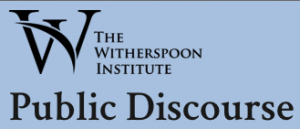Daniel Ross Goodman wrote an essay for The Witherspoon Institute’s Public Discourse titled “Updike’s Wager: Brilliance, Doubt, and the Miracle of Existence” that gets right to the heart of the matter: what made Updike’s life and literature “approachable.”
 “Very few literary lives are comparable to that of John Updike,” Goodman writes, but asserts that “Updike, despite occasional flourishes in his Rabbit novels, lacks the fierce passion that animated the life and literature of his contemporary (and erstwhile rival) Philip Roth. Yet both Updike’s career and Begley’s extremely well-written book are, unfortunately, largely boring. They are boring in their brilliance, boring in their monotonous excellence, and boring in their clinical perfection of form. To read Updike—and to read about his life—is to observe an incessant stream of perfection and good fortune: perfectly placed word; perfect job placement; fluid story; unimpeachable novel; immaculately executed prose; novelist taking his place among the finest of the realist tradition. We yearn for Updike to be challenged, just as we exult in Rabbit Angstrom’s rare displays of tempestuous rage.
“Very few literary lives are comparable to that of John Updike,” Goodman writes, but asserts that “Updike, despite occasional flourishes in his Rabbit novels, lacks the fierce passion that animated the life and literature of his contemporary (and erstwhile rival) Philip Roth. Yet both Updike’s career and Begley’s extremely well-written book are, unfortunately, largely boring. They are boring in their brilliance, boring in their monotonous excellence, and boring in their clinical perfection of form. To read Updike—and to read about his life—is to observe an incessant stream of perfection and good fortune: perfectly placed word; perfect job placement; fluid story; unimpeachable novel; immaculately executed prose; novelist taking his place among the finest of the realist tradition. We yearn for Updike to be challenged, just as we exult in Rabbit Angstrom’s rare displays of tempestuous rage.
“Why the lack of intense passion in Updike? Why does Harold Bloom’s stinging critique of Updike—”a minor novelist with a major style”—still retain its pique? Perhaps it was because Updike did not experience the deep suffering of many other literary geniuses.”
Goodman nonetheless concludes that Updike, compared to a host of literary luminaries, “may be the most intellectually curious writer of them all (George Eliot excepted, of course),” and it is “his extreme existential angst that makes Updike’s life and literature approachable. For who among us does not wonder about the meaning of our lives, the value of religion, and the nature of the universe? This element of existential exploration imparts a compelling, fascinating dimension to his work.”
Read the whole essay here.
